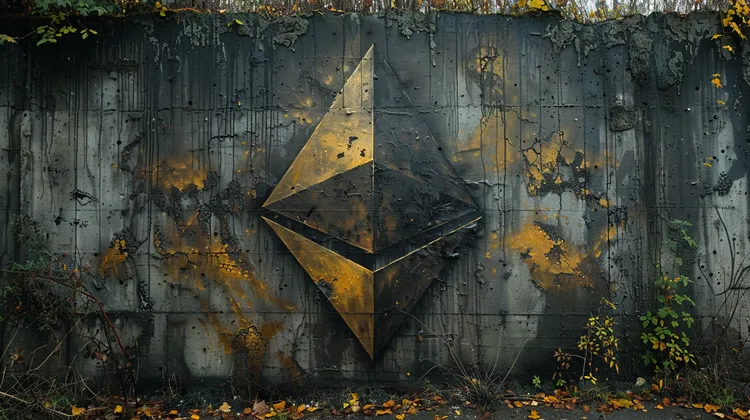
Buterin Proposes Solutions for Ethereum’s MEV
On May 17, Ethereum’s co-founder Vitalik Buterin suggested a novel solution to address the Miner Extracted Value (MEV) issue plaguing the Ethereum network. MEV is a practice where block producers aim to boost profits by manipulating transaction order within a block through sophisticated market tactics. Buterin illustrated this with an example involving decentralized exchanges (DEXs) like Uniswap.
He explained that if at a given moment (time T) the USD/ETH exchange rate on both centralized exchanges and Uniswap is $3000, and moments later (time T+11), the rate on centralized exchanges rises to $3005, a forthcoming Ethereum block (time T+12) might not have yet processed this update. A miner using MEV strategies could then arrange transactions so they purchase Ether on Uniswap at the earlier, lower rate and sell it at the higher rate on centralized exchanges, capitalizing on the price discrepancy.
While this practice can be highly profitable for validators, it introduces several issues. MEV significantly increases network congestion, drives up transaction (gas) fees, and causes greater slippage for traders. Essentially, this is an invisible tax on those using the Ethereum network. More importantly, continuous MEV exploitation could undermine confidence in the consensus mechanism, eroding overall trust in the network. If users believe that validators are undermining network integrity to maximize profits, they could migrate to other networks that do not have hidden MEV costs.
Péter Szilágyi, a Geth core developer, criticized the Ethereum network for enabling such practices by favoring MEV developers instead of taking steps to eliminate MEV altogether. This critique caught Buterin’s attention, leading him to offer several potential solutions to the problem.
Buterin indicated that traditional approaches to mitigating MEV include the use of quarantine and minimization techniques. MEV minimization entails developing alternative DEX solutions, such as Uniswap, and implementing protocol-level controls to limit the information available to MEV developers. Although effective, these minimization methods are intricate and expensive to implement.
Quarantining, Involves completely separating the block validation process from its content. This is done by delegating the responsibility of selecting transactions within a block to specialized builders, a concept known as proposal/builder separation (PBS). While PBS can reduce MEV, it carries the risk of increased centralization, as designated builders may arbitrarily exclude transactions from blocks.
To address the risks and limitations of PBS, Buterin proposed the use of inclusion lists. These lists allow builders to arrange transactions but require them to include all submitted transactions in their block proposals. This strategy aims to balance the power dynamics, ensuring that no transaction is unjustly excluded.
Buterin suggested a multifaceted approach to solving the MEV problem. This includes utilizing both minimization and quarantine techniques, incorporating inclusion lists, and lowering the technical requirements to run a node. Such measures are designed to maintain Ethereum’s decentralization and democratic nature.
Tackling MEV requires a combination of strategies, but the goal remains clear: to preserve the integrity and trustworthiness of the Ethereum network. By implementing these measures, the community hopes Ethereum will continue to be a strong, decentralized platform for a wide array of decentralized applications and transactions.
19 thoughts on “Buterin Proposes Solutions for Ethereum’s MEV”
Leave a Reply
You must be logged in to post a comment.
If ethereum continues to be so complicated, people will just move to other, simpler networks.
Inclusion lists seem like a fair remedy to MEV issues. Ethereums future looks brighter.
The proposed solutions just seem to add more layers of uncertainty and risk. Why cant there be a simpler fix?
Vitalik’s solution sounds complex and expensive. Why not tackle the root problem instead?
Vitaliks commitment to solving MEV proves Ethereum is here to stay!
Feel free to pick the ones you like most and use them wherever you need!
Inclusion lists sound effective! Kudos to Vitalik for always prioritizing community trust. 🙌🔒
Vitalik always with the innovative solutions! Ethereum will continue to lead. 🌐🌟
Finally, some action on addressing MEV! Vitalik always looking out for the community.
Péter Szilágyi has a point—focusing on eliminating MEV entirely might be the way to go rather than these convoluted solutions. 🤔💡
Finally getting some solid solutions for MEV! Thank you, Vitalik!
MEV should never have been a feature to begin with. Quarantine solutions are just bandaids on a deeper wound!
So, in an effort to solve one problem, we might create a bunch of new ones? Doesn’t sound like progress to me. 😬🔄
These measures are too complicated and, quite honestly, confusing for the average user.
Excited to see these solutions unfold. This is why Ethereum remains a top choice for decentralized applications! 💪🔗
A thorough and well-thought-out plan to tackle MEV! Ethereum is in good hands. 🤖🌟
Such a thorough and comprehensive strategy to maintain Ethereum’s integrity. Well done, Vitalik! 💎⚡
PBS and inclusion lists – brilliant approach! Ethereum is leading the way in decentralization!
Vitalik’s solutions seem promising! Excited to see what the future holds for Ethereum. 🌐🔥